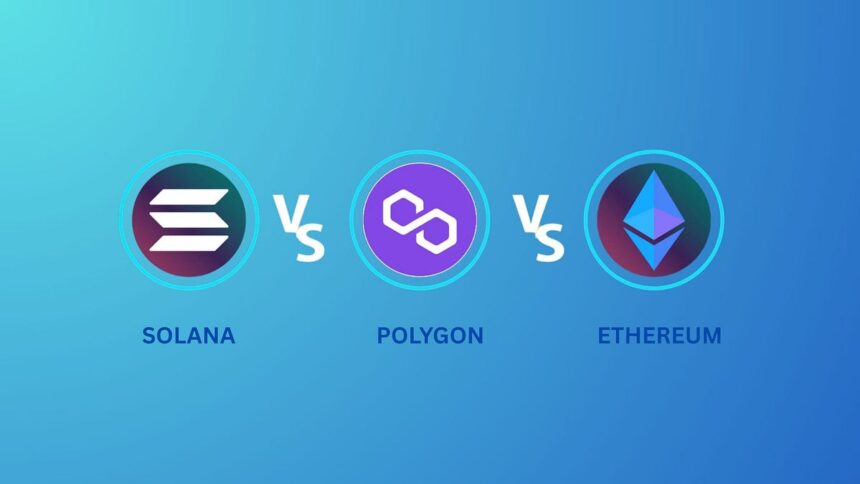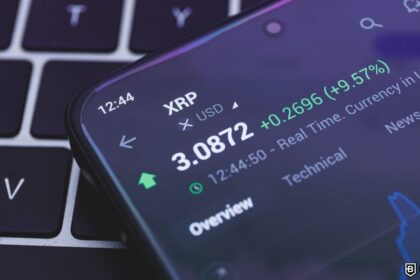In the evolving world of blockchain technology, selecting the right platform for smart contract development is a critical decision for any business. Smart Contract Development Services have become essential for organizations looking to automate agreements, streamline operations, and build decentralized applications (dApps) that are secure, transparent, and efficient. With multiple leading platforms available, understanding the strengths and weaknesses of each is key to making an informed choice.
When searching for an Ethereum Application Development Company, you’ll find that Ethereum remains the most established and widely adopted blockchain for smart contracts. Its robust ecosystem, extensive developer community, and proven track record make it a top choice for businesses seeking reliable and innovative solutions. Ethereum’s pioneering role in introducing flexible smart contracts has set the standard for the industry, and its compatibility with a wide range of dApps ensures long-term viability for projects of all sizes.
For those exploring alternatives, a Solana Development Company can offer high-speed, low-cost solutions. Solana stands out for its exceptional throughput and scalability, making it ideal for applications that require rapid transaction processing. With a growing ecosystem and support for multiple programming languages, Solana is quickly becoming a favorite among developers looking to build fast and affordable decentralized solutions.
As you consider your options, it’s also important to evaluate Polygon, a leading Layer 2 scaling solution for Ethereum. Polygon combines the security of Ethereum with the speed and affordability of its own network, making it an attractive platform for businesses that want the best of both worlds.
Smart contracts are self-executing agreements written in code and deployed on a blockchain. They automatically enforce the terms of a contract when predefined conditions are met, eliminating the need for intermediaries and reducing the risk of disputes or fraud. This technology has found applications across industries, from finance and supply chain to real estate and digital identity.
The process of smart contract development involves several stages, including requirement analysis, design, coding, testing, security auditing, deployment, and ongoing maintenance. Each step is crucial to ensure that the contract functions as intended and remains secure against potential vulnerabilities.
Overview
Ethereum is the original and most widely used platform for smart contract development. Launched in 2013, Ethereum introduced the concept of flexible, programmable smart contracts and established the Ethereum Virtual Machine (EVM) as the standard runtime environment for executing decentralized applications.
Key Features
- Solidity Programming Language: Ethereum smart contracts are primarily written in Solidity, a high-level language designed specifically for the EVM. Solidity is accessible to developers familiar with JavaScript and other C-like languages, making it relatively easy to learn for those with programming experience.
- Extensive Ecosystem: Ethereum boasts the largest developer community and the most comprehensive set of tools, libraries, and frameworks for building dApps. This ecosystem supports everything from DeFi platforms and NFT marketplaces to gaming and supply chain solutions.
- Security and Decentralization: Ethereum’s decentralized nature and robust security model provide a high level of trust and reliability for businesses and users. The platform’s transition to a Proof of Stake (PoS) consensus mechanism has further improved its efficiency and sustainability.
- Interoperability: Ethereum’s compatibility with other blockchains and Layer 2 solutions like Polygon allows for seamless asset transfers and cross-chain functionality.
Performance and Scalability
Ethereum processes approximately 30 transactions per second (TPS), which can lead to congestion and high gas fees during peak usage. However, ongoing upgrades such as the Shanghai (Shapella) upgrade in 2023 have improved transaction speeds and reduced costs, making the platform more scalable and efficient.
Use Cases
Ethereum is ideal for:
- DeFi (Decentralized Finance): Lending, borrowing, and trading platforms.
- NFT Marketplaces: Digital art, collectibles, and gaming assets.
- Supply Chain Management: Tracking and verifying goods throughout the supply chain.
- Tokenization: Creating and managing digital assets such as ERC-20, ERC-721, and ERC-1155 tokens.
Challenges
- High Gas Fees: During periods of high demand, transaction costs can become prohibitively expensive for small users.
- Scalability Limitations: Despite improvements, Ethereum’s throughput remains lower than newer platforms like Solana and Polygo.
Overview
Solana is a high-performance blockchain designed to address the scalability challenges faced by Ethereum. With its unique consensus mechanism and architecture, Solana offers fast, low-cost transactions, making it an attractive option for businesses that require high throughput.
Key Features
- Rust Programming Language: Solana smart contracts are written in Rust, a language known for its performance and safety. The platform also supports C and C++, providing flexibility for developers.
- High Throughput: Solana can process up to 65,000 transactions per second, far exceeding Ethereum’s capabilities. This makes it suitable for applications that require rapid and frequent transactions.
- Low Transaction Fees: Solana’s efficient consensus algorithm keeps transaction costs low, typically just a few cents per transaction.
- Growing Ecosystem: While Solana’s developer community is smaller than Ethereum’s, it is rapidly expanding. The platform supports a wide range of dApps, including DeFi, NFTs, and gaming.
Performance and Scalability
Solana’s architecture is designed for speed and scalability, with a focus on minimizing latency and maximizing throughput. This makes it ideal for applications that require real-time processing and high volumes of transactions.
Use Cases
Solana is ideal for:
- High-Frequency Trading: Decentralized exchanges and trading platforms.
- NFT Marketplaces: Fast and affordable minting and trading of digital assets.
- Gaming: Real-time, blockchain-based games with in-game economies.
- Payments: Low-cost, instant payment solutions.
Challenges
- Centralization Concerns: Solana’s validator node distribution has raised questions about the platform’s decentralization and censorship resistance.
- Network Stability: During periods of extreme congestion, Solana has experienced outages and increased transaction costs.
- Ecosystem Maturity: While growing, Solana’s tooling and developer resources are not as mature as Ethereum.
Overview
Polygon is a Layer 2 scaling solution for Ethereum that enables faster and more cost-effective transactions. By building on top of Ethereum, Polygon combines the security and decentralization of Ethereum with the speed and affordability of its own network.
Key Features
- Solidity Compatibility: Polygon supports the same programming languages and standards as Ethereum, making it easy for developers to port existing dApps or build new ones.
- High Throughput: Polygon can process up to 65,000 transactions per second, matching Solana’s throughput and far exceeding Ethereum’s.
- Low Transaction Fees: Polygon’s Proof of Stake (PoS) consensus mechanism keeps transaction costs low, making it accessible for businesses of all sizes.
- Interoperability: Polygon is designed for seamless integration with Ethereum and other blockchains, enabling cross-chain asset transfers and connectivity.
- Developer-Friendly Tools: Polygon offers a range of APIs, SDKs, and development frameworks to simplify the process of building and deploying dApps.
Performance and Scalability
Polygon’s Layer 2 architecture allows it to offload transaction processing from the Ethereum mainnet, reducing congestion and lowering costs. This makes it an ideal solution for businesses that want to leverage Ethereum’s security while benefiting from faster and cheaper transactions.
Use Cases
Polygon is ideal for:
- DeFi Platforms: Decentralized exchanges, lending, and borrowing protocols.
- NFT Marketplaces: Affordable minting and trading of digital assets.
- Gaming: Blockchain-based games with in-game economies and digital collectibles.
- Enterprise Solutions: Supply chain management, identity verification, and more.
Challenges
- Dependence on Ethereum: While Polygon offers significant advantages, it is still ultimately tied to Ethereum’s security and infrastructure.
- Ecosystem Maturity: Polygon’s ecosystem is growing rapidly but is still less mature than Ethereum’s.
To help businesses make an informed decision, here is a side-by-side comparison of the three platforms:
Choosing the Right Platform
The choice between Ethereum, Solana, and Polygon depends on your business needs and technical requirements:
- Ethereum is best for businesses that prioritize security, decentralization, and access to the largest developer ecosystem. It is ideal for complex dApps that require robust smart contract functionality and long-term viability.
- Solana is ideal for applications that require high throughput, low latency, and low transaction costs. It is well-suited for gaming, high-frequency trading, and NFT marketplaces that demand rapid processing.
- Polygon offers the best of both worlds, combining Ethereum’s security with fast and affordable transactions. It is a great choice for businesses that want to leverage Ethereum’s ecosystem while avoiding high fees and congestion.
Regardless of the platform you choose, following best practices is essential for successful smart contract development:
- Requirement Analysis: Clearly define the objectives, scope, and functionality of your smart contract.
- Design and Architecture: Plan the structure and data flow of your contract to ensure it meets your business needs.
- Coding and Testing: Write clean, secure code and thoroughly test your contract for bugs and vulnerabilities.
- Security Audits: Conduct comprehensive security audits to identify and fix potential weaknesses.
- Deployment and Maintenance: Deploy your contract to the blockchain and monitor its performance, making updates as needed.
Smart contracts are transforming industries by automating processes and reducing reliance on intermediaries. Here are some examples of how businesses are using smart contracts today:
- Finance: Automating loan approvals, insurance payouts, and escrow services.
- Supply Chain: Tracking goods, verifying authenticity, and triggering payments upon delivery.
- Real Estate: Facilitating property transfers and rental agreements.
- NFTs: Managing digital art, collectibles, and in-game assets.
- Gaming: Enabling player-owned economies and digital asset trading.
The smart contract landscape is continuously evolving, with new platforms, tools, and standards emerging to address scalability, interoperability, and security challenges. Key trends to watch include:
- Cross-Chain Interoperability: Enabling seamless communication and asset transfers between different blockchains.
- Layer 2 Solutions: Scaling solutions like Polygon and Optimistic Rollups are making blockchain technology more accessible and affordable.
- Enterprise Adoption: More businesses are exploring private, permissioned blockchains for internal use cases.
- Security Innovations: Advanced auditing tools and formal verification methods are improving the safety and reliability of smart contracts.
If you’re ready to explore smart contract development for your business, here are the steps to get started:
- Define Your Use Case: Identify the problem you want to solve and the benefits you expect from a smart contract.
- Choose the Right Platform: Evaluate Ethereum, Solana, and Polygon based on your technical and business requirements.
- Assemble Your Team: Work with experienced developers or partner with a reputable smart contract development company.
- Design and Develop: Plan, code, and test your smart contract to ensure it meets your needs.
- Deploy and Monitor: Launch your contract on the blockchain and monitor its performance, making updates as needed.
At Codezeros, we specialize in delivering high-quality Smart Contract Development Services for businesses of all sizes. Our team of experienced developers has deep expertise in Ethereum, Solana, and Polygon, enabling us to build secure, scalable, and innovative solutions tailored to your unique needs.
Whether you’re looking for an Ethereum Application Development Company to build a robust DeFi platform, a Solana Development Company to create a high-speed NFT marketplace, or a partner to deploy scalable solutions on Polygon, Codezeros has the skills and experience to bring your vision to life.
We follow industry best practices at every stage of the development process, from requirement analysis and design to coding, testing, security auditing, deployment, and ongoing maintenance. Our commitment to quality and customer satisfaction ensures that your smart contract project is delivered on time and to the highest standards.
Ready to take your business to the next level with smart contracts? Contact Codezeros today to discuss your project and discover how our Smart Contract Development Services can help you achieve your goals.










